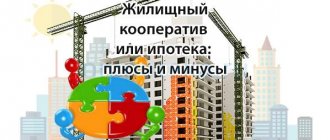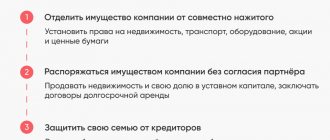Homeowners association functions
The procedure and conditions for carrying out the activities of the HOA are regulated. In accordance with Art. 135 LCD, HOA is a non-profit association of owners of residential premises in an apartment building or several nearby apartment buildings. The purpose of creating an HOA is joint management, maintenance and increase in the volume of common property of apartment buildings, provision of utilities and other purposes approved by the charter.
HOA is a Russian version of the Western form of condominium.
The partnership is a legal entity and is therefore subject to state registration. It is created for an indefinite period. Its members must include more than 50% of the number of owners of residential premises in the apartment building.
It is worth mentioning what is the difference between HOA and. In the first case, apartment owners can make independent decisions regarding the maintenance and repair of property and control how funds are spent.
Financing of the partnership's activities is carried out at the expense of its members, in proportion to the share in the common property of the multi-storey building.
Find out more about what a homeowners association is.
HOA: rights and responsibilities
1. The concept of HOA.
2. Charter of the HOA.
3. Rights and obligations of the HOA.
4. General meeting of the HOA.
Concept of HOA
There are different ways to manage an apartment building.
One of these management methods is a homeowners association (hereinafter referred to as the HOA).
).
What is it and what are the main stages of its creation?
This term means an association of owners of premises in an apartment building (MKD) for the joint management of common property in an MKD or the property of the owners of premises in several MKDs or several residential buildings, to ensure ownership, use and disposal of the relevant property, implementation of activities for the creation, maintenance, preservation and the increase in such property, the provision of utilities to persons using premises in this apartment building or these residential buildings, as well as other activities provided for by law (Part 1 of Article 135 of the Housing Code of the Russian Federation; hereinafter referred to as the Housing Code of the Russian Federation).
In other words, the definition of “HOA” means a form of self-government of residents over their property.
The decision to create a HOA is considered adopted if it is voted for by the owners of premises in the corresponding apartment building, having more than 50% of the votes of the total number of votes of the owners of premises in such a building (Part 1 of Article 136 of the Housing Code of the Russian Federation).
The HOA is a legal entity from the moment of its state registration. The HOA has a seal with its name, a current and other bank account, and other details.
HOA Charter
The main document regulating the activities of the HOA is the charter adopted at the general meeting of owners of premises in the apartment building.
The HOA charter must contain:
1) name, including the words “homeowners association”;
2) location of the HOA;
3) the subject and goals of its activities;
4) the procedure for the establishment and termination of membership in the HOA;
5) information about the composition and competence of the management bodies of the partnership and the procedure for making decisions by them;
6) information about the composition and competence of the audit commission (competence of the auditor) of the partnerships;
7) other information provided for by the Housing Code of the Russian Federation.
The charter of the HOA is adopted by a majority vote of the total number of votes of the owners of premises in an apartment building (Part 2 of Article 135 of the Housing Code of the Russian Federation).
Rights and obligations of the HOA
According to the current legislation, the HOA is endowed with both rights and responsibilities (Article 137, Article 138 of the Housing Code of the Russian Federation).
The HOA has the right:
- enter into a management agreement for apartment buildings and other agreements ensuring the management of apartment buildings, including the maintenance and repair of common property in apartment buildings;
- determine the estimate of income and expenses for the year, including the necessary expenses for the maintenance and repair of common property in the apartment building, costs for major repairs and reconstruction of the apartment building, special contributions and deductions to the reserve fund;
- establish (based on the accepted estimate) the amounts of payments and contributions for each owner of premises in an apartment building in accordance with his share in the right of common ownership of common property in an apartment building;
- perform work for owners of premises in apartment buildings and provide them with services;
- use loans provided by banks;
- transfer material and monetary resources under the contract to persons performing work and services for the HOA;
- sell and transfer for temporary use, exchange property belonging to the HOA.
In addition, the HOA has the right (in cases where this does not violate the rights and legitimate interests of the owners of the premises):
1) provide for use or limited use part of the common property in the apartment building;
2) build on, rebuild part of the common property in the apartment building;
3) receive for use or receive or acquire land plots into common shared ownership of the owners of premises in apartment buildings for housing construction, construction of utility and other buildings and their further operation;
4) carry out, on behalf and at the expense of the owners of premises in the apartment building, the development of allocated land plots adjacent to such a house;
5) enter into transactions and perform other actions consistent with the goals and objectives of the HOA.
The HOA is obliged:
1) ensure compliance with the requirements of legislation and the charter of the partnership;
2) manage the MKD;
3) fulfill obligations under the contract;
4) ensure proper sanitary and technical condition of the common property in the apartment building;
5) ensure that all owners of premises in apartment buildings fulfill their obligations for the maintenance and repair of common property;
6) ensure compliance with the rights and legitimate interests of owners of premises in apartment buildings when establishing the conditions and procedure for ownership, use and disposal of common property;
7) take measures necessary to prevent or terminate actions of third parties that impede or interfere with the exercise of the rights of ownership, use and, within the limits established by law, of the owners of premises with common property in an apartment building;
 represent the legitimate interests of owners of premises in apartment buildings, including in relations with third parties
represent the legitimate interests of owners of premises in apartment buildings, including in relations with third parties
9) maintain a register of HOA members and annually during the first quarter of the current year send a copy of this register to the executive authorities of the constituent entities of the Russian Federation,
10) within three months from the date of state registration of changes made to the charter of the HOA, submit to the authorized executive authorities of the constituent entities of the Russian Federation, copies of documents (a copy of the charter of the partnership, an extract from the minutes of the general meeting of members of the partnership on the decision to amend the charter of the partnership , certified by the chairman of the partnership and the secretary of the general meeting of members of the partnership, copies of the texts of the relevant changes).
General meeting of the HOA
General meeting of HOA members
is the highest governing body of the HOA.
The following issues fall within the competence of the general meeting of HOA members (Article 145 of the Housing Code of the Russian Federation):
1) approval of the HOA charter and amendments to the charter
2) the decision on the reorganization and liquidation of the HOA, the appointment of a liquidation commission, approval of the interim and final liquidation balance sheets;
3) election of members of the board, members of the audit commission (auditor) of the HOA and, if provided for by the charter, the chairman of the board of the HOA from among the board members, as well as early termination of their powers;
4) establishing the amount of mandatory payments and contributions;
5) approval of the procedure for the formation of the partnership’s reserve fund, other special funds of the partnership (including funds for current and major repairs of common property in an apartment building) and their use, as well as approval of reports on the use of such funds;
6) making a decision on obtaining borrowed funds, including bank loans;
7) determining the directions for using income from the economic activities of the partnership;
 approval of the annual plan for the maintenance and repair of common property, a report on the implementation of such a plan;
approval of the annual plan for the maintenance and repair of common property, a report on the implementation of such a plan;
9) consideration of complaints against the actions of the board, chairman of the board and the audit commission (auditor) of the HOA;
10) adoption and amendment of the internal regulations of the HOA in relation to employees whose responsibilities include the maintenance and repair of common property in the apartment building, provisions on the payment of their labor, approval of other internal documents of the HOA;
11) determination of the amount of remuneration for members of the board of the partnership, including the chairman of the board of the partnership.
The list of issues within the competence of the general meeting of members of the partnership is open. The HOA charter may include the resolution of other issues within the competence of the general meeting.
The general meeting of HOA members is valid if it is attended by members of the partnership or their representatives who have more than 50% of the total number of votes of the members of the partnership.
Decisions of the general meeting of owners of premises in an apartment building are documented in minutes and are binding on all owners of premises in an apartment building, including those owners who did not participate in the voting (Part 1 5 of Article 46 of the Housing Code of the Russian Federation).
How is a partnership created?
The decision to create an HOA is made by the general meeting of apartment owners. The main condition is that citizens who collectively own more than 50% of the total property must vote “for”. They sign the minutes of the meeting and approve the charter of the partnership.
To fully carry out the activities of the HOA as a legal entity, it undergoes state registration, and only after that can manage the property of the apartment building.
Owners of residential premises, including those who became owners after the creation of the partnership, have the right to join it upon application.
By decision of the general meeting of members, the HOA can be transformed into a housing or housing construction cooperative. If necessary, members of several partnerships have the right to create a non-profit association, for example, an HOA association for the consolidated protection of common interests.
Learn more about how to create an HOA.
Responsibilities and rights of the chairman of the HOA
According to Article 149 of the Housing Code of the Russian Federation, the powers of the chairman of the homeowners' association are determined at the general meeting and are enshrined in the Charter.
The elected person is the head of the management bodies of the apartment building. This must be a person who knows how to quickly make constructive decisions and has the qualities of a leader.
The following requirements are imposed on a candidate for the position of chairman of the organization:
- this must be the owner of the residential premises in the HOA;
- must permanently reside in the apartment building;
- presence of higher education;
- Experience in leadership positions is desirable.
The HOA chairman must be prepared to perform the following actions:
- conflict resolution - listening to complaints and claims of owners;
- resistance to pressure;
- quickly solving current problems.
The initial appointment is for 1 year . Based on the results of this period, the general meeting or a specially created commission will evaluate the activities of the head of the organization. If the assessment is positive, the mandate may be extended for a longer period.
The decision on the creation and appointment of governing bodies is recorded in the minutes. The chairman is usually elected by members of the governing body or a general meeting of residents.
Powers of the partnership and HOA manager
According to Art. 144 of the Housing Code, the governing bodies of the homeowners’ association are the general meeting and the board. Their competencies are divided by law. The main meeting is considered to be the general meeting, while the board is vested with administrative and administrative functions.
The board is subordinate to the general meeting, but the exercise of the powers of the partnership is carried out on the direct instructions of the first. For example, to perform the functions of the association, the board may hire and enter into an employment contract with the manager of the HOA. As a rule, the main powers of the partnership are exercised through it.
In particular, the manager has the right:
- enter into contracts for management and provision of public services;
- hire and engage contractors to perform work;
- draw up income and expense estimates, transfer funds to performers;
- manage the common property of the apartment building, including leasing and providing for use;
- identify violations of the law by residents and owners of premises: illegal redevelopment, reconstruction;
- attract borrowed funds to achieve statutory goals;
- supervise the work of contractors;
- collect debts for utility bills;
- build up allocated areas, and so on.
The law does not say who approves the job description of the HOA manager. According to paragraph 5 of Art. 148 of the Housing Code, the authority to hire employees for the partnership is vested in the board, therefore it will determine the scope of the manager’s powers, which, in turn, must be spelled out in the agreement concluded with him.
The manager will take all actions on behalf of the partnership on the basis of the power of attorney issued to him. However, in this case, the HOA manager cannot act in place of the chairman.
The manager only performs administrative and managerial functions, but is not the governing body of the HOA, much less manages its board, but, on the contrary, is subordinate to it.
In fact, the manager is an ordinary hired employee, performing exclusively the functions delegated to him, answering only to the board and only within the framework of labor or civil law.
Rights and powers of the HOA
A homeowners' association carries out its activities of managing an apartment building in a similar way to a management company, housing department or commercial organization.
According to Article 137 of the Housing Code of the Russian Federation, the partnership has the right to perform the following actions:
- concluding agreements with management and operating companies for maintenance of apartment buildings and provision of utilities to residents;
- calculation of income and expenses, determination of the amount of financial resources for carrying out current and major repairs of the facility, remuneration of contractors, formation of a reserve fund;
- independent performance of work for homeowners. For example, homeowners' associations independently, without resorting to the services of management companies, organize garbage and solid waste removal, hire entrance cleaners;
- settlements under contracts with legal entities and individuals who interact with the HOA;
- collection of rent from residents and tenants of residential premises;
- application of measures in relation to debtors within the framework of legislation;
- sale, rental, exchange of property;
- use of credit funds;
- calculating rent based on cost estimates.
The entire list of powers of the homeowners association is indicated in the Charter, including the obligation of the HOA to provide information to residents . Within the framework of this regulatory document, it is possible to re-equip and reconstruct existing premises, equip parking, and transform the adjacent territory.
The powers and rights of the HOA should not contradict the legislation of the Russian Federation, in particular the Housing Code. They can be slightly supplemented and expanded in relation to a specific problem.
The board of the partnership exercises most of its rights independently: for example, it distributes funds among bank accounts and calculates payments for utilities.
The audit commission controls the legality of the partnerships' actions . It consists of 3-4 people who are neither members nor employees of the HOA.
Significant changes in the structure of the organization, which affect the ratio of funds in various funds, are carried out on the basis of a vote of the general meeting of residents.
To perform a range of housework, you may need access to a certain living space. This issue is being resolved with a specific owner. Members of the organization have the right to access residential premises and common areas.
If the owner's consent is not obtained, entry into his apartment is possible only by court decision, for example, if it is necessary to collect a debt on rent. Enforcement measures are carried out not by the HOA board, but by bailiffs.
Responsibilities of the HOA, board and chairman
The rights and responsibilities of the chairman of the HOA, according to the Housing Code, should be distinguished from the powers of the partnership itself. The responsibilities of the HOA, as follows from Art. 138 LCDs, consist of:
- management, proper sanitary maintenance and repair of MKD property;
- ensuring the rights of apartment building residents, including in relations with third parties;
- representing the legitimate interests of owners in the field of management;
- maintaining a register of HOA members and so on.
The job responsibilities of the chairman of the HOA in apartment buildings are to lead the board. He ensures the implementation of the decisions of the governing body, gives orders to officials, makes transactions that do not require approval from the board, and performs other functions specified in Art. 149 LCD.
The responsibilities of the board are to manage the activities of the HOA and, as evidenced by Art. 148 residential complexes, include:
- monitoring compliance with the requirements of the charter, management of apartment buildings;
- control of payment of membership fees;
- drawing up income and expense estimates;
- concluding contracts, hiring employees, engaging contractors;
- holding a general meeting.
The answer to the question of who elects the chairman of the HOA, the board or the general meeting, is contained in clause 3 of Art. 147 LC: these powers are vested in the board if the choice of the chairman, in accordance with the charter of the partnership, is not transferred to the general meeting. However, the board itself is elected for only 2 years. It is accountable to the general meeting, so ordinary members still have leverage over it.
Find out more about the rights and responsibilities of the HOA chairman.
Requirements for the chairman of the HOA
The main constant requirement for a candidate is to own an apartment in a given building. Advantages are given to persons who have received a higher education and also have experience in management.
Chairman of the HOA
Among personal qualities, comprehensive development, the ability to achieve goals, and knowledge of human psychology are welcomed. The chairman must be distinguished by good health and the ability to resolve conflicts both with residents of the house and with government organizations.
Important! The position of chairman implies a high moral burden: a citizen must be able to protect the interests of residents within the framework of the law and resist public opinion.
Responsibility of the HOA and its chairman
Problems with the chairman of the HOA board are a common situation. They often enjoy the limited liability of the association, which, according to paragraph 6 of Art. 135 of the Housing Code, is liable for obligations only with its property. Members of the HOA do not bear any responsibility for the obligations of the partnership.
Yet the board and its chairman are under the control of the general meeting. According to Article 145 of the Housing Code, it is this:
- determines the amount of remuneration of these persons;
- approves the composition of the board, and sometimes the chairman;
- adopts an annual report on their activities;
- considers complaints against the board and chairman and may terminate their powers early.
For control purposes, the general meeting has the right to create a commission, which cannot include members of the board. According to Art. 150 of the Housing Code, the audit commission of the homeowners association is authorized to:
- check the financial statements of the HOA at least once a year;
- report the results of the audit to the general meeting;
- present to the meeting a conclusion on the income and expenditure budget, financial activities and the amount of fees;
- report on their activities to members of the HOA.
Sometimes the commission's actions reveal that the board is wasting money. Based on the results of the audit, the chairman of the HOA may face criminal liability for misuse of funds under Art. 160.
In addition, in case of detection of violations of the rules of maintenance and repair, as well as standards for providing the population with public utilities, the chairman of the board as an official may be held administratively liable under Art. 7.22 and 7.23.
Activities of the board and HOA
The chairman of the board of a homeowners association acts on behalf of the HOA without any powers of attorney. Together with the board, they are the executive body of the partnership, therefore they are entrusted with all administrative and administrative functions.
The board that manages the HOA is a collegial body, therefore its decisions cannot be made individually by one of the members, including the chairman. To do this, you need to secure more than 50% of the votes.
The functions of the chairman of the HOA, as well as its board, are to ensure normal life and successful implementation of the goals and objectives for which the association was created. Within these functions they:
- convene and hold general meetings;
- interact with contractors, management companies, service organizations, and residents;
- attract borrowed funds to achieve set goals;
- report to the members meeting and so on.
One of the most important functions of the board is the work of the HOA chairman with the management company. If the partnership does not have sufficient material and technical resources, it engages management organizations and companies for the purpose of managing, maintaining and servicing apartment buildings. Such management companies are responsible to the board for the work done, and the governing body itself is responsible to the members of the HOA.
An equally important part of the board’s work is interaction with residents of the buildings it serves.
Issuance of certificates
The direct responsibilities of the partnership include:
- issuing certificates of family composition;
- provision of opinions and technical documentation for MKD;
- registration of apartment extracts;
- drawing up reports, for example, on pouring, on the technical condition of structures.
If representatives of the HOA refuse to process documents due to debt, this can be qualified as a direct violation of the rights of residents. In such cases, it is recommended to submit complaints to the board or general meeting.
Penetration into residential premises
Representatives of the HOA have access only to common areas, including technical premises in the apartment building. The employees of the partnership do not have the right to enter the apartment, much less demand access from the residents.
The exception is the presence of a court decision on the collection of large debts and the presence of representatives of the FSSP executing this order. Any other grounds do not give the right to access to the apartment.
Penalties
If residents are in arrears in paying for utility services, the HOA has the right to charge a penalty. This does not even have to be stated in the charter or agreement with the HOA.
According to paragraph 14 of Art. 155 of the Housing Code, the right to accrue penalties arises on the next day of delay. One month after the day on which payment should have been made, the amount of the penalty is determined for each overdue day:
- 31-90 days – 1/300 of the Central Bank refinancing rate;
- more than 90 days – 1/130 of the Central Bank refinancing rate.
Collection of penalties and debts is carried out in court.
Acceptance of new members to the HOA
In accordance with Art. 143 of the Housing Code, to accept a new member into the partnership, his application to join the HOA is sufficient - there is no need to sign a separate agreement.
If at the time of acquiring ownership of an apartment in the building there is an HOA, the home buyer becomes a member of the association only after submitting an application. There is no automatic entry into the partnership, even if the former homeowners were its members.
To collect information about members of the HOA, a special register is maintained.
Working with debtors
Many residents doubt whether the chairman of the HOA has the right to post lists of debtors. Public shaming is a very effective method of pre-trial struggle with debtors. In addition, control over the timely payment of utilities by residents is the direct responsibility of the board of the association (clause 2 of article 148 of the Housing Code). But the question of the legality of such actions has two sides:
- if the lists contain personal data of residents, for example, first and last name, this is a violation of the provisions;
- if the debtors in the lists are anonymized, for example, only apartment numbers and debt amounts are indicated, and without additional sources it is impossible to determine the identities of the defaulters, the publication of this information is not considered a violation of the law.
Salary of the chairman of the HOA
In the context of dissatisfaction with the work of the chairman, residents are often interested in whether the chairman of the HOA has the right to receive a salary in 2021. From a legal point of view, the chairman is not a hired employee of the HOA - he manages the management body of the partnership, therefore an employment contract is not concluded with him. Therefore, he cannot claim a salary. At the same time, some form of financial compensation may be awarded for his work, considered from the point of view of the law as remuneration.
The answer to the question of who approves the amount of payment to the chairman of the HOA can be found in paragraphs. 1 clause 1 art. 145 LCD. In accordance with this document, determining the amount of remuneration for board members falls within the competence of the general meeting of HOA members. Typically, such information is included in the Articles of Association of the partnership.
Based on the information entered, a calculation is made. Typically, the amount of remuneration is tied to the volume of work performed as a proportion of its cost.
The law does not establish how to verify the legality of the salary calculation for the chairman of the HOA. This can be done by the audit commission by checking the financial statements of the partnership and comparing them with the work implemented in practice.











